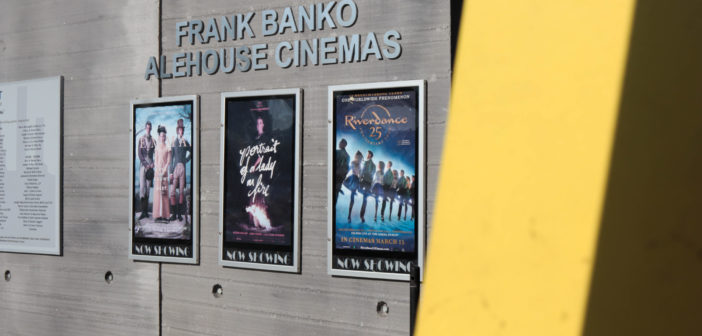In the months since the first American citizen was confirmed to have contracted coronavirus, 40 million have filed for unemployment, U.S. quarterly GDP dropped the most it has since the 2008 financial crisis and the government has passed a federal bailout bill.
In March, when social distancing measures took effect across the nation, business leaders large and small scrambled to reconfigure their companies at a moment’s notice. Months later, it remains unclear which will survive.
The business of live entertainment often involves packing patrons shoulder to shoulder in confined spaces — during a pandemic, that is all but impossible. It’s for this reason that live entertainment venues from concert halls to movie theaters have been hit especially hard by the public health crisis.
According to an 8-K filed by AMC Entertainment Holdings Inc., the theater chain expects a loss of somewhere between $2.1 and $2.4 billion in the first quarter, largely as a result of the coronavirus. An 8-K is a form a company fills out to provide its investors with current information to enable them to make informed decisions, according to the U.S. Securities and Exchange Commission.
On the other hand, in-home entertainment is booming. Netflix added 15.8 million new subscribers in Q1, according to a Forbes report.
Even as movie theaters eke their way back open, it is yet to be seen if audiences will flock to theaters in the way they had before COVID-19 — or if their beloved theaters will be there when the dust settles.
Peter Block, a producer and longtime studio executive, said audiences’ movie watching preferences had been changing even before the coronavirus hit.
Even as the industry moves to embrace video on demand and online streaming, Block doesn’t believe the pandemic will scare audiences away from theaters for good.
“As long as ‘A Quiet Place 2’ is still going to come out, people are going to find a reason to say, ‘OK, I’m going to go,’ ” Block said. “Maybe I might change when I go. Maybe I’m more of a Saturday morning person instead of a Saturday night person — but people will still go.”
Louis Santor, chief operating officer at Village Roadshow Pictures, agrees. He said people will eventually return to theaters because of the social experience movie-going provides.
“The idea that people will revert to an antisocial tendency where they only watch stuff at home is a stretch,” Santor said.
While audiences in all likelihood will eventually return to theaters, Universal’s $100 million payday for Trolls World Tour shows on demand has the potential to provide a viable alternative in the meantime.
“The streaming model had been growing on its own before the pandemic,” Santor said. “With Netflix, Amazon and Hulu all out there, there was already a significant demand for making product for a direct to consumer environment.”
In the olden days, before the proliferation of streaming and video on demand, Santor says studios took a risk spending money whenever they marketed movies to broad audiences.
“It was a sort of binary system,” Santor said. “Things either worked or they didn’t.”
In recent years this binary system encouraged studios to foster direct consumer relationships in the hopes of relying less heavily on theatrical distribution.
Ryan Hill, film programming director at the Bethlehem-based nonprofit ArtsQuest, has observed studios moving away from a reliance on theatrical ticket sales. Though he’s noticed the change, he expects many large theater chains to pull through the pandemic.
“It’s in the best interest for the bigger studios for those big movie theater chains to be there at the end of this because they have content that they have not yet figured out how to monetize on streaming platforms,” Hill said.
With that said, Hill believes the pandemic could give studios an added opportunity to experiment with new distribution models — which may leave theaters out of the financial loop.
“It’ll be interesting to see what the distributors do for their video on demand windows,” Hill said. “If they were to release Wes Anderson’s forthcoming ‘The French Dispatch’ in theaters and on demand on the same day, that is going to really upset (theater owners) because then you’re really preventing a lot of the money we could be making.”
Though what comes next is uncertain, Hill is confident independent theaters have a place in the future of the film business.
“I don’t worry about independent cinemas,” Hill said. “The independent cinemas that do it the right way have die hard fans who want to go back. Where it’s a community that people want to be a part of… You can’t get that sense of community that cinema can engender just anywhere… What I want is for independent theaters to continue the work they were doing before the pandemic — which is fostering the idea that cinema is a community.”






Comment policy
Comments posted to The Brown and White website are reviewed by a moderator before being approved. Incendiary speech or harassing language, including comments targeted at individuals, may be deemed unacceptable and not published. Spam and other soliciting will also be declined.
The Brown and White also reserves the right to not publish entirely anonymous comments.